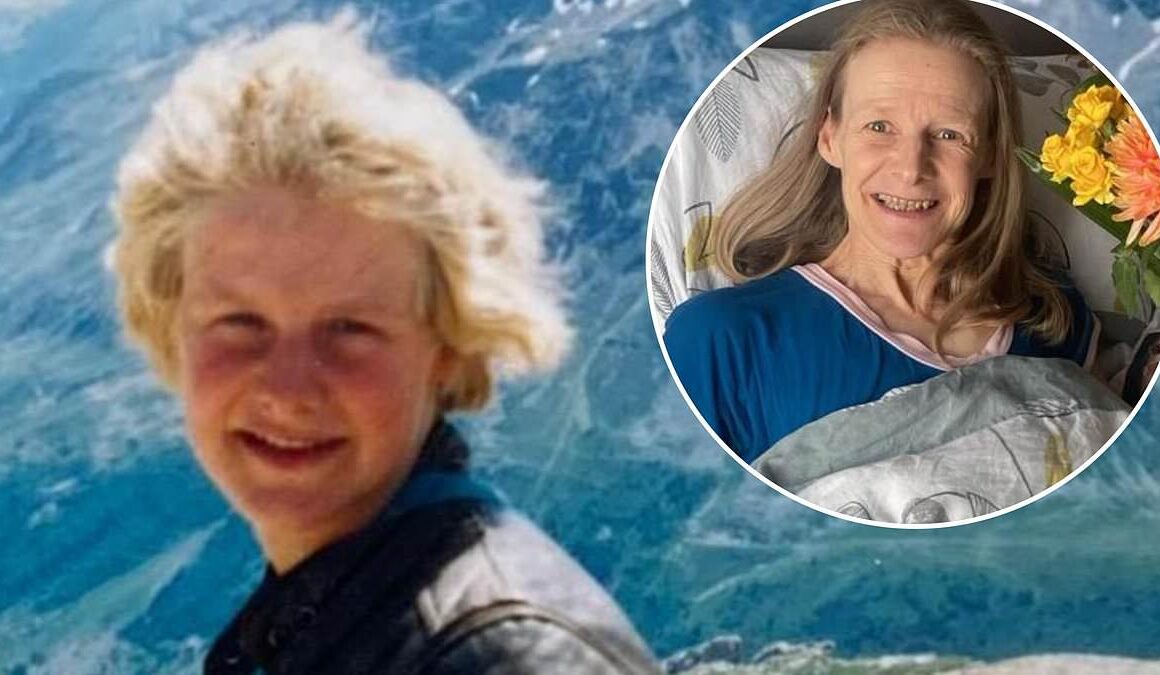A woman recorded a series of heartbreaking messages as she prepared to die after travelling to the Netherlands for an assisted death.
Edina Slayter-Engelsman lived in Aberdeenshire for 30 years before returning to her homeland after four years of ‘unbearable’ suffering due to an incurable illness.
The 57-year-old who used to be a keen hillwalker, cyclist and swimmer, was struck down with ME, also known as chronic fatigue syndrome, in 2020.
Within weeks it left her bedbound, and in one of her last moving recorded messages she told how it was a ‘relief’ that Dutch medics recognised there was no other treatments and she could ‘die with dignity’.

ME sufferer Edina Slayter-Engelsman travelled to the Netherlands so she could ‘die with dignity’
She described the condition, which can cause extreme tiredness and leave patients unable to perform basic daily tasks, as like living in a ‘spider’s web’.
She said: ‘Every time you try to get out, the web just gets tighter and tighter around you.
‘This disease has taken everything from me. I feel trapped physically, cognitively and emotionally.
‘I exist but I don’t live and this condition has become unbearable to me and has been for a long time now, to the point where I want to end my life.’ And she stressed she was not alone.
She said: ‘There are a lot of people like me, they don’t get seen, they don’t get heard because they can’t. They are stuck at home, often in their bedroom. There is no help but there should be.’
Ms Slayter-Engelsman returned to the Netherlands, where euthanasia and assisted suicide are legal for citizens under strict controls, last year.
Her family shared her messages with the BBC to raise awareness of her condition just months before Scottish ministers are due to discuss a proposed assisted suicide bill this autumn.
The bill put forward by Lib Dem MSP Liam McArthur would, unlike the Dutch law, be limited to adults who are dying of a terminal illness, not those suffering from a severe long-term condition.
But in one of her final messages Ms Slayter-Engelsman said the recognition of her suffering by the Dutch medics and that there were no further treatment options was a ‘relief’.
She added: ‘On the one hand I am very sad about this of course, but on the other hand I feel a huge sigh of relief that I am allowed to die with dignity.’
The condition, for which there is no known cure or cause, is believed to affect at least 250,000 people in the UK, with the symptoms varying from mild to severe.
After a year of psychological and psychiatric assessments, doctors administered Ms Slayter-Engelsman a lethal injection. She died with her husband, two sons and close family by her side.
University of Edinburgh Professor Chris Ponting, who is leading the world’s largest study into the causes of ME, described her death as a ‘tragedy’.
He said: ‘She is not the first who has taken this decision and unhappily she will not be the last.’
He said ME predominantly affects older women. But he added ‘that section of society is not a section of society that has been well treated’ and he believed if this was an illness with a ‘male bias’ it would have had ‘far greater attention’.
He said: ‘It is not rare at all, but the amount of funding [it gets] is £2 or £3 per person per year. The figures speak for themselves.’ He expects to have the results of the DecodeME genetic study, which has involved examining DNA from more than 20,000 participants, in the next six months.
Professor Ponting hopes the findings will help focus research on specific causes which will in turn lead to improved treatments.
The Scottish Government said last night it recognise how ‘distressing and debilitating’ sever ME can be and said it wants to ‘make sure’ patients can access the care and support they need to manage their condition.
A spokesman added: ‘We are currently updating health board data on ME/CFS care in Scotland with the aim of identifying areas where there is potential to progress service development.’








